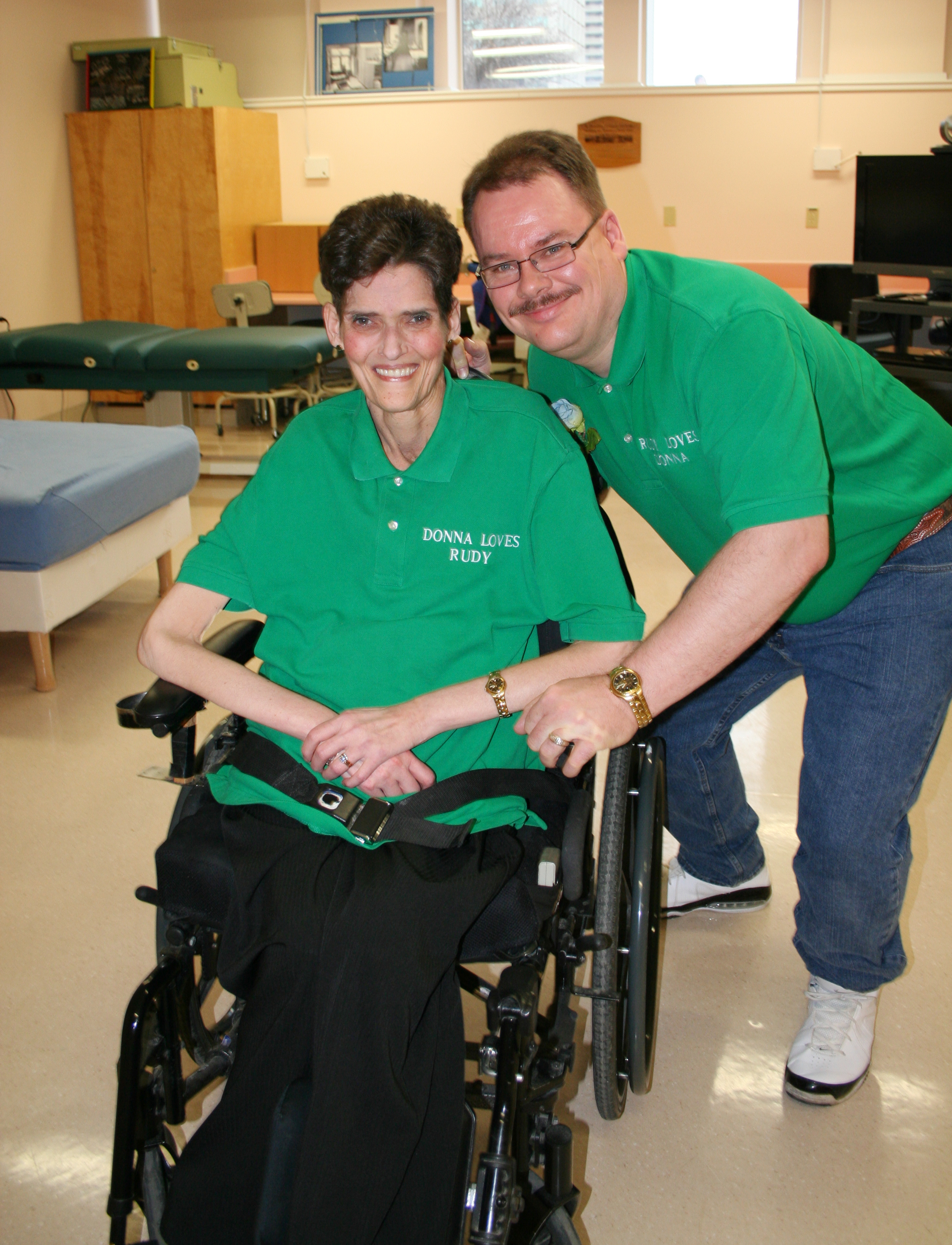
Donna and Rudy Cornet
Can people in wheelchairs have sex? Rudy and Donna Cornet say yes. Donna has multiple sclerosis and uses a wheelchair to get around. Her husband has brain damage after getting hit by a van in 1988.
"You think that because you're in a wheelchair or you're disabled that your sex life's over - not true," says Rudy.
The couple is featured on SexAbility, a one-hour documentary that Shaniff Esmail, a University of Alberta professor in the Faculty of Rehabilitation Medicine, helped put together alongside Kelly Falardeau, burn survivor and best-selling author. Esmail, PhD, from the Department of Occupational Therapy, is a sexual health expert and was a consultant for the documentary.
"When looking at someone with a disability and their sexuality, I think it's important to look at it from the context of an able-bodied person without a disability," says Esmail. "Just because you have a disability does not mean that you're asexual or that you don't think about sex."
SexAbility chronicles the sex lives of people with disabilities and the lengths they go to enjoy something the rest of us take for granted. Esmail says there is a social stigma surrounding sex and disability that must be broken because sex is for everyone, including people with disabilities.
"Where there's a will, there's a way," he says. "Couples who really want to have sex and are interested in resuming sexual activity - they will. But a lot of time they need a little bit of a push. They just need someone to tell them that it's okay to be sexual. Unfortunately, our society tends to look at individuals with disabilities as asexual - it's a stigma and it's wrong."
Donna says this stigma makes her feel "absolutely awful."
"Rudy and I are normal human beings and we love each other with all our hearts," she says. "There's no reason we shouldn't be able to express our love in a physical way. We've been on our honeymoon for 20 years now."
SexAbility will be broadcast on AMI's The Accessible Channel - TACtv on Thursday, December 8, 2011, at 9:00 p.m.
About Accessible Media Inc.
Accessible Media Inc. (AMI) is a not-for-profit multimedia organization operating two broadcast services, VoicePrint and The Accessible Channel - TACtv, and a companion website (ami.ca). AMI serves more than five million Canadians who are blind, deaf, vision, hearing or mobility impaired, learning disabled, print-restricted or learning English as a second language by making print, broadcast and online media accessible.
For program listings and channel guides, please visit www.ami.ca.
About the University of Alberta Faculty of Rehabilitation Medicine
As the only free standing faculty of rehabilitation in Canada, the University of Alberta Faculty of Rehabilitation Medicine balances its activities among learning, discovery and citizenship (including clinical practice). A research leader in musculoskeletal health, spinal cord injuries and common spinal disorders (back pain), the Faculty of Rehabilitation Medicine aims to improve the quality of life of citizens in our community. The three departments, Occupational Therapy (OT), Physical Therapy (PT) and Speech Pathology and Audiology (SPA) offer professional entry programs. The Faculty offers thesis-based MSc and PhD programs in Rehabilitation Science, attracting students from a variety of disciplines including OT, PT, SLP, psychology, physical education, medicine and engineering.